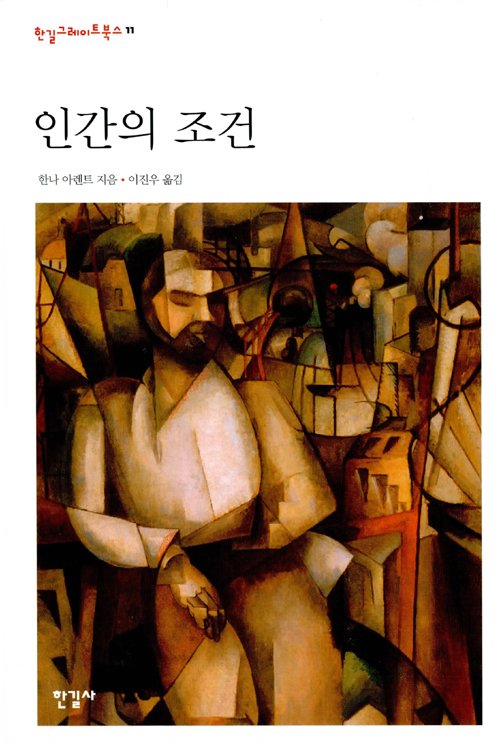한나 아렌트 [인간의 조건상태(인간의 조건)] 2부 9장. 사회적인것들 및 사적인것들

9.. 사회적인것들 및 사적인것들The Social and the Private
사회적인것들의 일어남은 사적인 프로퍼티를 위한 사적인 보살핌이 공적인 어떤 관심으로 트랜스포메이션되는 것과 역사적으로 일치했다. 사회는, 그것이 공적인 권역으로 들어갈 때, 프로퍼티-오너들의 어떤 조직체로 위장했다. (고전고대처럼) 공적인 권역을 향한 접근을 클레임하기 위해서 자신들의 웰쓰를 주장한게 아니라, 이들은 더많은 웰쓰의 축적을 위해서 공적인 권역으로부터 자신들을 보호해달라고 요구했다. 장 보댕처럼... 신민들의 프로퍼티를 보호하는 것이... (주권의 의무였고)... 코먼웰쓰는 (글자그대로) 공통된 웰쓰를 위해서 거대하게 실존했다(142~143)What we called earlier the rise of the social coincided historically with the transformation of the private care for private property into a public concern. Society, when it first entered the public realm, assumed the disguise of an organization of property-owners who, instead of claiming access to the public realm because of their wealth, demanded protection from it for the accumulation of more wealth. In the words of Bodin, government belonged to kings and property to subjects, so that it was the duty of the kings to rule in the interest of their subjects' property. "The commonwealth," as has recently been pointed out, "largely existed for the common wealth,,"78
(고전고대에서) 하우스홀드들의 프라이버시(사적임) 안으로 내쫓겼었던 활동들(필수욕구적인들의 마스터링을 위한 노동)의 결과에 불과한 공통된 웰쓰가 공적인 권역을 점령하는 것이 허락되었을 때, 사적인 포제쎤들이 세계의 내구성을 파먹기 시작했다... 공통으로 공유된 세계 안에 내재한 영속성과 평등하게 되거나 또는 가까이라도 되려면, 웰쓰는 자본이 되어야 했다... 그러나 공통된 세게의 영속성이 안정된 구조의 그것이라면, 자본의 영속성은 과정의 것이다. 따라서 축적의 과정이 없다면, 자본의 웰쓰는 즉각적으로 쓰임과 소모를 통해서 해체되는 대립되는 과정 안을향해 글러 떨어진다(143)When this common wealth, the result of activities formerly banished to the privacy of the households, was permitted to take over the public realm, private possessions— which are essentially much less permanent and much more vulnerable to the mortality of their owners than the common world, which always grows out of the past and is intended to last for future generations— began to undermine the durability of the world. It is true that wealth can be accumulated to a point where no individual life-span can use it up, so that the family rather than the individual becomes its owner. Yet wealth remains something to be used and consumed no matter how many individual life-spans it may sustain. Only when wealth became capital, whose chief function was to generate more capital, did private property equal or come close to the permanence inherent in the commonly shared world. However, this permanence is of a different nature; it is the permanence of a process rather than the permanence of a stable structure. Without the process of accumulation, wealth would at once fall back into the opposite process of disintegration through use and consumption.
따라서, 공통된 웰쓰는 결코전혀 공통된 어떤 세계라고 발언하는 의미에서의 그러한 공통된 것이 될 수가 없다. 그것은 오히려 엄격하게 사적인 것으로 남는다... 오직 더많은 웰쓰를 위한 경쟁적인 투쟁 안에서 제각각 다른이로부터 사적인 오너들을 방패막이해주도록 지명된, 오직 정부통치만이 공통된 것이 되었다. 정부통치 안에서 사람들이 공통으로 갖는 것은 그들의 사적인 인터레스트들일 뿐이다... 사적인것들과 공적인것들의 모순은, 사적인 권역과 공적인 권역이 사회적인것들의 스피어 안에 둘다 침몰됨으로써 나타난, 근대초기의 일시적인 현상이다. 생명삶의 공적인 스피어와 사적인 스피어 둘다 모두 사라질 때, 공적인것들은 사적인것들의 어떤 기능이 되어버리고, 사적인것들이 유일한 공통된 관심사로 남았다(144)Common wealth, therefore, can never become common in the sense we speak of a common world; it remained, or rather was intended to remain, strictly private. Only the government, appointed to shield the private owners from each other in the competitive struggle for more wealth, was common. The obvious contradiction in this modern concept of government, where the only thing people have in common is their private interests, need no longer bother us as it still bothered Marx, since we know that the contradiction between private and public, typical of the initial stages of the modern age, has been a temporary phenomenon which introduced the utter extinction of the very difference between the private and public realms, the submersion of both in the sphere of the social. By the same token, we are in a far better position to realize the consequences for human existence when both the public and private spheres of life are gone, the public because it has become a function of the private and the private because it has become the only common concern left.
사적인 권역들과 공적인 권역들 사이의 구별은... 보여져야만 할 거시기들과 감추어져야만할 거시기들 사이의 구별과 같다... 역사의 시초부터 지금까지도 인간 실존의 몸체적인 부분은 프라이버시(사적임) 안에 숨겨지길 욕구한다... 노동자... 여자... 노예는 숨겨져야 했다(147)The distinction between the private and public realms, seen from the viewpoint of privacy rather than of the body politic, equals the distinction between things that should be shown and things that should be hidden. Only the modern age, in its rebellion against society, has discovered how rich and manifold the realm of the hidden can be under the conditions of intimacy; but it is striking that from the beginning of history to our own time it has always been the bodily part of human existence that needed to be hidden in privacy, all things connected with the necessity of the life process itself, which prior to the modern age comprehended all activities serving the subsistence of the individual and the survival of the species.
원주80. 여성의 생명삶을 아리스토텔레스는 포네티코스라고 불렀다. 여자와 노예는 같은 부류로써 함께 살았다... 신분지위는 출생보다는 "직업"나 기능에 종속되었다... 여자들의 신분이 어떠하든 간에, 노동은 그들의 고유한 일이었다. 전쟁이 남자들의 고유한 일이듯이(148)The life of a woman is called ponetikos by Aristotle, On the Generation of Animals 775a33. That women and slaves belonged and lived together, that no woman, not even the wife of the household head, lived among her equals— other free women— so that rank depended much less on birth than on "occupation" or function, is very well presented by Wallon(op. cit., I, 77 ff.), who speaks of a "confusion des rangs, ce partage de toutes les fonctions domestiques": "Les femmes... se confondaient avec leurs esclaves dans les soins habituels de la vie interieure. De quelque rang qu'elles fussent, Ie travail etait leur apanage, comme aux hommes la guerre."